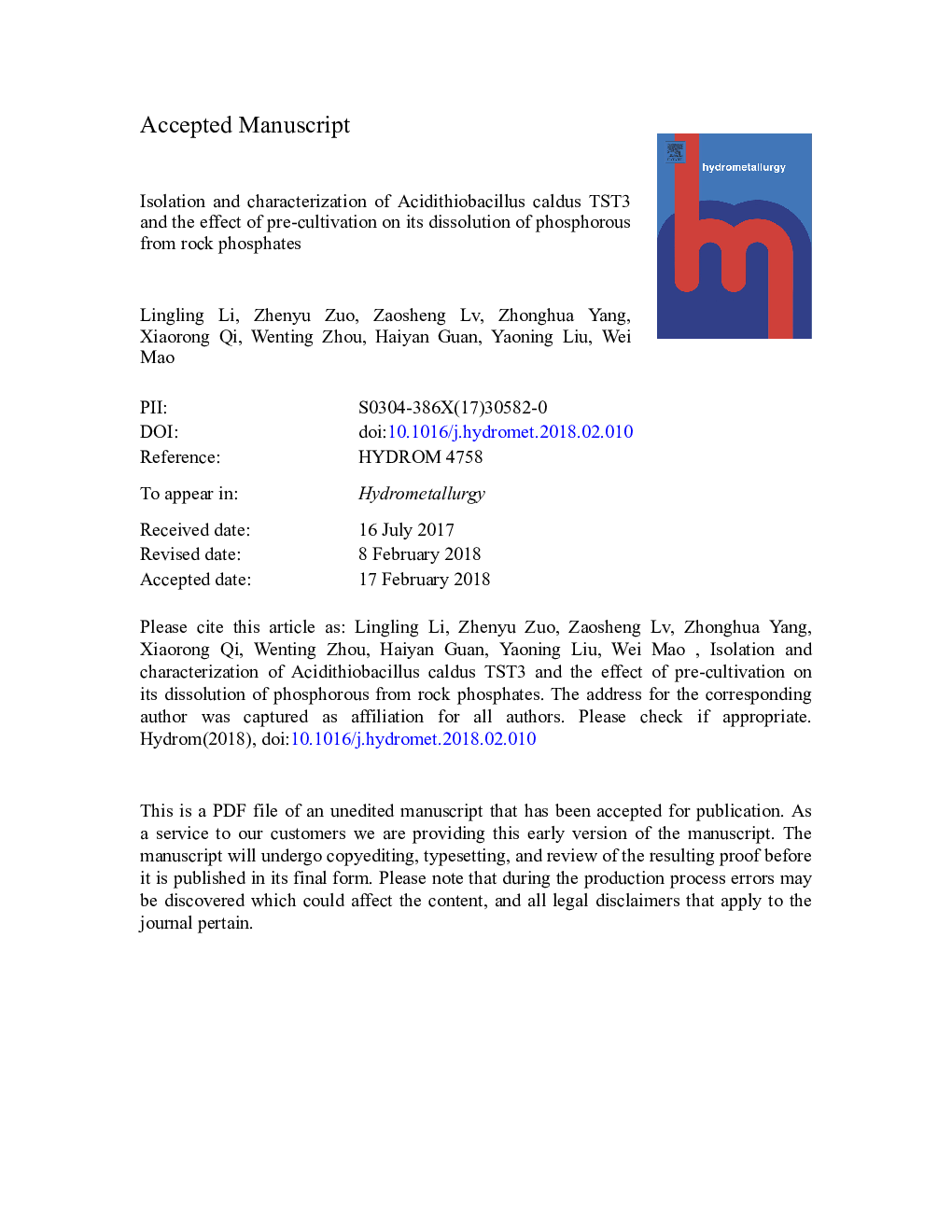| Article ID | Journal | Published Year | Pages | File Type |
|---|---|---|---|---|
| 6658957 | Hydrometallurgy | 2018 | 20 Pages |
Abstract
The dissolution of rock phosphates by A. caldus TST3 was explored in a series of bio-leaching experiments without and with pre-cultivation of the microorganism. The results showed that phosphorous was more efficiently bio-solubilized under the condition without pre-incubation in comparison to that obtained with pre-cultivation when strain TST3 was cultured in a phosphorous-limited environment. The presence of RPs exerted a positive effect on the expression of sulfur oxidation genes, bio-oxidative activity of elemental sulfur and bacterial growth. Bio-solubilization of rock phosphates was a pH-dependent phenomenon. The larger amount of phosphorous dissolved from rock phosphates without pre-cultivation coincided with the increased generation of gypsum crystals due to the relatively lower pH values from the enhanced bio-oxidization of sulfur.
Related Topics
Physical Sciences and Engineering
Chemical Engineering
Chemical Engineering (General)
Authors
Lingling Li, Zhenyu Zuo, Zaosheng Lv, Zhonghua Yang, Xiaorong Qi, Wenting Zhou, Haiyan Guan, Yaoning Liu, Wei Mao,
